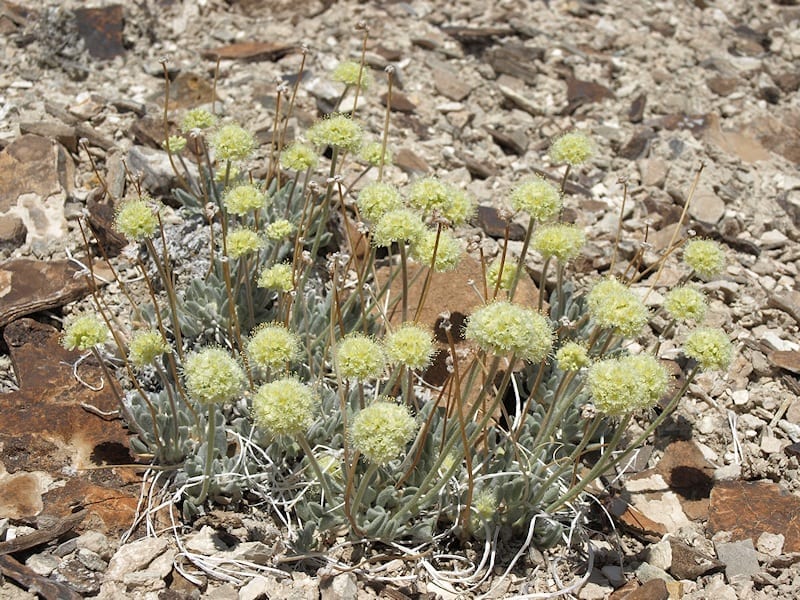by Jeniffer Solis, Nevada Current
February 3, 2022
The U.S. Fish and Wildlife Service proposed a rule Wednesday to protect 910 acres of critical habitat for a rare Nevada flower under threat by a proposed lithium mine on its only known habitat.
Tiehm’s buckwheat’s entire global population grows on about 10 acres of land in western Nevada’s Silver Peak Range. Under the proposed rule, the agency would list a much larger swath of land in Esmeralda County as critical habitat to support plant reproduction.
“Designating critical habitat for Tiehm’s buckwheat is key to the plant’s persistence and recovery because it occupies such a small range and requires such specific habitat conditions to survive,” Marc Jacksonfield supervisor for FWS in Reno, said in a statement. “This designation will help us work more effectively with our partners to support current and future land uses that promote conservation and recovery of Tiehm’s buckwheat.”
Thousands of Tiehm’s buckwheat – which are found nowhere else in the world – were destroyed last summer by ground squirrels gnawing on the roots for water, according to the agency. That incident reduced the flower’s population by at least 50% and as much as 64%.
In October, FWS submitted a proposed rule to list the species as endangered after determining the Tiehm’s buckwheat could face extinction without federal protection.
The 910 acre plot of critical habitat would cut through the site of an open-pit lithium mine planned by Australia-based ioneer Ltd.
Ioneer Managing Director Bernard Rowe, however, said the critical habitat designation proposal was expected and does not feel the agency’s decision is a major obstacle. Rowe argued that lithium operations can coexist with Tiehm’s buckwheat by using a combination of avoidance, protection and seedling propagation.
Mining activity is permitted in areas designated as critical habitat with approval of the FWS and the U.S. Bureau of Land Management, noted Rowe, adding that ioneer will work closely with both agencies to develop a conservation plan that will allow the mine to move forward.
“From the beginning, the Rhyolite Ridge operation has been designed and planned to incorporate the conservation and protection of Tiehm’s buckwheat. We have always firmly understood the need to protect this species, irrespective of its listing status,” said Rowe.
Conservation advocates applauded the agency’s proposal to designate critical habitat for the flower.
“I’m thrilled that the Fish and Wildlife Service has recognized the existential threats to Tiehm’s buckwheat and provided badly needed habitat protections,” said Patrick Donnelly, Great Basin director at the Center for Biological Diversity. “There’s just no way to save species from extinction without protecting the places they live.”
The proposal is now open to a 60-day public comment period. The designation of critical habitat would not affect land ownership or establish a wildlife refuge, wilderness reserve, preserve or other conservation area.
Nevada Current is part of States Newsroom, a network of news bureaus supported by grants and a coalition of donors as a 501c(3) public charity. Nevada Current maintains editorial independence. Contact Editor Hugh Jackson for questions: [email protected]. Follow Nevada Current on Facebook and Twitter.

